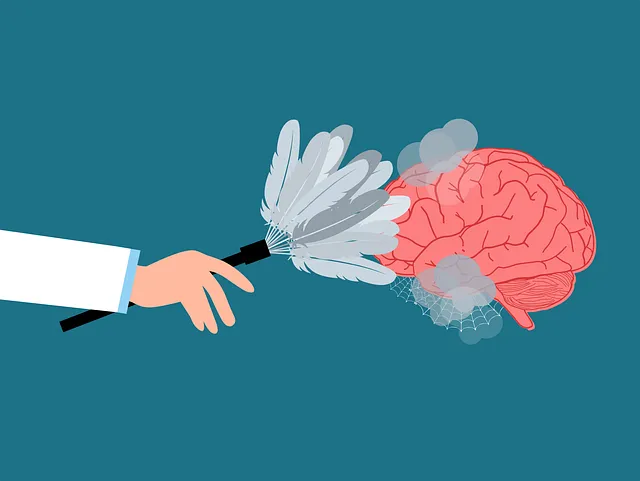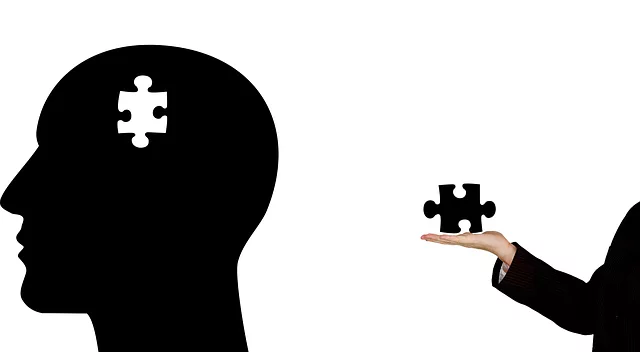Social Skills Training at Kaiser Permanente mental health Colorado Springs equips individuals managing mental health conditions with essential communication, empathy, and conflict resolution techniques. Through structured programs combining role-playing, group discussions, mindfulness, and stress reduction, participants learn to navigate social situations, build connections, and manage anxiety. This tailored approach enhances overall mental well-being and reintegration into social settings, while raising public awareness about mental health support available through Kaiser Permanente Colorado Springs.
Social skills training is a powerful tool for individuals navigating mental health conditions, offering a path to enhanced well-being. This comprehensive guide explores how programs like those provided by Kaiser Permanente Mental Health Colorado Springs are transforming lives. We delve into the unique challenges faced by those with mental health issues in social interactions and highlight effective strategies employed in training. By understanding these approaches, we can recognize the profound real-life applications and benefits of social skills training, fostering better support for those seeking recovery.
- Understanding Social Skills Training for Mental Health Conditions
- The Role of Kaiser Permanente Mental Health Colorado Springs
- Identifying Challenges in Social Interaction for Those with Mental Health Conditions
- Effective Strategies and Techniques for Social Skills Training
- Real-Life Applications and Benefits of Social Skills Training Programs
Understanding Social Skills Training for Mental Health Conditions

Social Skills Training for Mental Health Conditions plays a pivotal role in enhancing the quality of life for individuals managed by organizations like Kaiser Permanente mental health Colorado Springs. This type of training goes beyond traditional therapy, focusing on practical, real-world scenarios to equip individuals with the tools necessary for effective social interaction. By participating in structured programs, patients learn essential skills such as communication, empathy building strategies, and conflict resolution techniques, which are crucial for navigating daily life and fostering healthy relationships.
These self-care practices aren’t just about improving interpersonal dynamics; they empower individuals to better manage their mental health conditions. Through role-playing exercises and group discussions, participants develop a deeper understanding of non-verbal cues, learn to recognize and respond appropriately to social cues, and gain confidence in social settings. Incorporating empathy building strategies allows for stronger connections with peers and support systems, while conflict resolution techniques help individuals de-escalate tensions and resolve disagreements constructively.
The Role of Kaiser Permanente Mental Health Colorado Springs

Kaiser Permanente Mental Health Colorado Springs plays a pivotal role in providing comprehensive care for individuals dealing with various mental health conditions. This healthcare organization offers specialized services designed to address the unique challenges faced by those seeking support for their mental wellness. Their approach integrates evidence-based practices, including Conflict Resolution Techniques and Mindfulness Meditation, into therapy sessions.
By focusing on these strategies, Kaiser Permanente empowers patients with valuable tools to navigate everyday life and manage stress effectively. The integration of conflict resolution techniques aids in fostering healthier relationships and improving communication skills, while mindfulness meditation promotes a sense of calm and enhances emotional regulation. Through such innovative methods, Kaiser Permanente Mental Health Colorado Springs is revolutionizing the way individuals approach and overcome mental health hurdles.
Identifying Challenges in Social Interaction for Those with Mental Health Conditions

Social interactions can pose unique challenges for individuals managing mental health conditions, often impacting their ability to engage and connect with others. Kaiser Permanente mental health Colorado Springs services recognize that social skills are a vital component of overall well-being, and training in this area can significantly enhance recovery journeys. Many people struggling with anxiety, depression, or post-traumatic stress disorder (PTSD) may experience difficulties initiating conversations, maintaining eye contact, or reading social cues, which can lead to feelings of isolation and decreased self-esteem.
The impact of these challenges varies widely; some may find themselves avoiding social situations altogether, while others might struggle internally, desiring connection but feeling incapable. Self-esteem improvement is a common goal for many seeking support, as building confidence in social settings can foster better relationships and overall mental health. Risk assessment for mental health professionals plays a crucial role here, helping to identify individuals’ specific needs and tailoring interventions accordingly. Additionally, addressing anxiety relief techniques during social skills training can empower participants to navigate social interactions more comfortably.
Effective Strategies and Techniques for Social Skills Training

Social Skills Training for Mental Health Conditions: Effective Strategies and Techniques
At Kaiser Permanente mental health Colorado Springs, we understand that social skills are vital to maintaining emotional well-being. Our approach focuses on evidence-based techniques tailored to individual needs, aiming to enhance interaction abilities and foster a supportive environment. Through role-playing scenarios and group discussions, individuals learn effective communication strategies, empathy development, and conflict resolution skills. These interactive sessions promote anxiety relief and mood management, enabling participants to navigate social situations with increased confidence.
Additionally, our program incorporates emotional well-being promotion techniques, such as mindfulness exercises and stress reduction methods, which complement the learning of social skills. By combining these approaches, we empower individuals to build meaningful connections, improve their overall mental health, and successfully reintegrate into various social settings.
Real-Life Applications and Benefits of Social Skills Training Programs

Social Skills Training Programs offer practical, real-life applications that can significantly benefit individuals with mental health conditions, such as those managed by Kaiser Permanente mental health Colorado Springs. These programs equip participants with essential communication and interpersonal abilities, fostering a sense of belonging and self-confidence in social settings. By learning effective strategies for initiating conversations, active listening, and resolving conflicts, individuals gain the courage to engage in social interactions that were once challenging or avoided altogether.
One of the key benefits is improved access to support networks. Trained individuals are better equipped to reach out for help when needed, whether it’s connecting with peers for emotional support or accessing Trauma Support Services. Furthermore, these programs contribute to broader Public Awareness Campaigns Development by reducing stigma and promoting understanding of mental health challenges, ultimately encouraging more people to seek assistance and engage in self-care practices.
Social skills training, as demonstrated by initiatives like those at Kaiser Permanente Mental Health Colorado Springs, offers a promising approach to enhancing the lives of individuals with mental health conditions. By addressing specific challenges in social interaction, these programs empower participants with essential coping mechanisms and communication strategies. As highlighted through real-life applications, successful implementation can lead to improved relationships, increased independence, and better overall well-being. For those seeking effective interventions, Kaiser Permanente’s expertise in this field is a valuable resource, potentially revolutionizing support for mental health conditions in the community.






